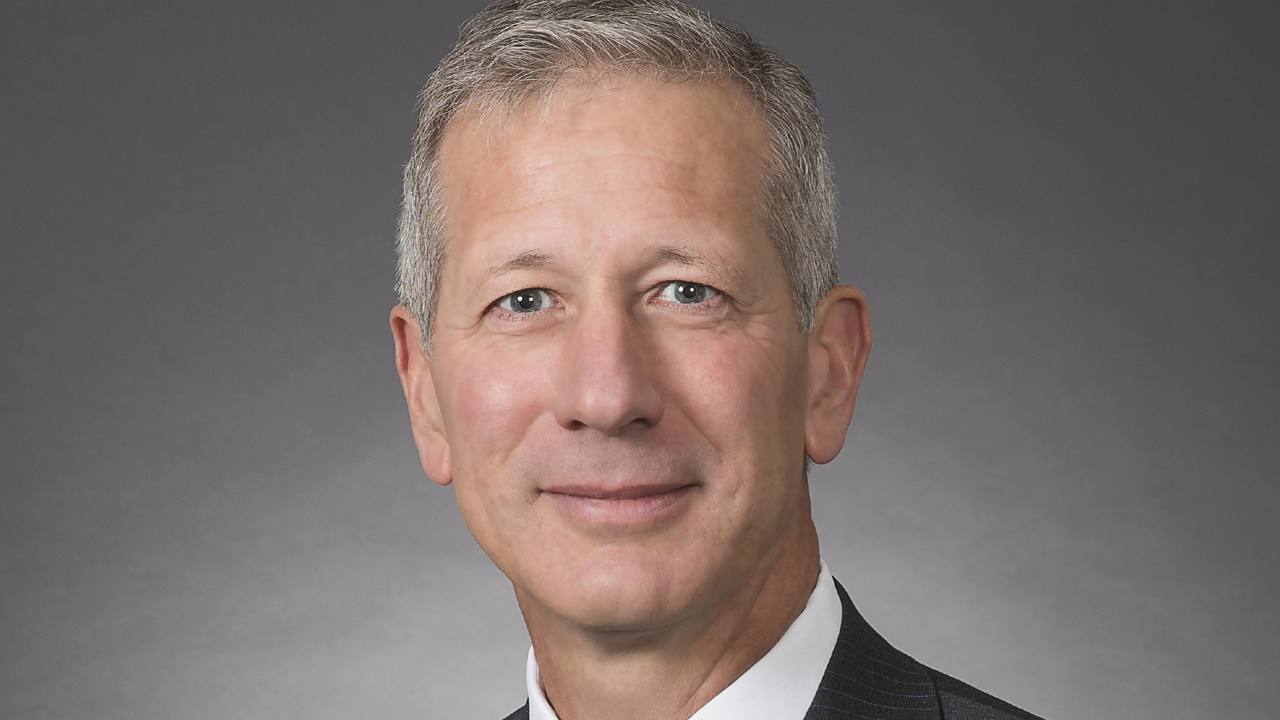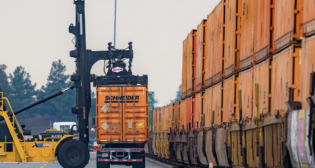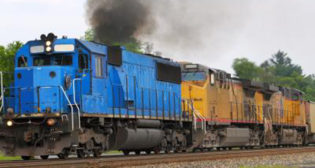
UP ‘Pauses’ Embargoes
Written by Marybeth Luczak, Executive Editor
Lance Fritz, Chairman, President and CEO, Union Pacific
Union Pacific (UP) Chairman, President and CEO Lance Fritz on Dec. 16 advised the Surface Transportation Board (STB) that his railroad is immediately “pausing any additional embargoes under the pipeline inventory management program we began in November.”
STB in November ordered the UP leader and other top UP executives to appear at a Dec. 13-14 public hearing on what it called a “substantial increase” in the Class I railroad’s use of embargoes as a method of reducing rail traffic congestion.
An embargo suspends a shipper’s right to common carriage by restricting freight movements. Issued by a railroad when weather, congestion, labor strife, natural disasters or track conditions prevent fluid operations, embargoes may not be used as an alternative to seeking regulatory approval for line abandonments, to avoid handling unprofitable or undesired traffic, or to influence routing. Shippers may ask the STB to cancel an embargo.
STB reported that UP embargoes increased from a total of 27 in 2017 to more than 1,000 as of Nov. 17, 2002. According to agency, between Nov. 1, 2022, and Nov. 17, 2022, UP issued 126 embargoes with congestion as the stated cause. Of those, 89 were issued on Nov. 16; as of Nov. 17, UP had 128 active embargoes in place and, for all, congestion was the stated cause, the agency wrote in its Nov. 22 decision to hold the hearing. “The Board understands that embargoes may vary in scope and that all carriers do not report and use embargoes in the same way,” STB reported. “Nevertheless, the use of embargoes by all other Class I carriers, combined, pales in comparison to the number of embargoes issued by UP. Given UP’s sizeable role in freight rail, its increased use of embargoes in recent years, and the considerable increase just this month, it is imperative that the Board hear from UP directly about this matter and how UP plans to reduce, if not eliminate, the use of embargoes to control congestion.”
Prior to the December hearing, STB said it expected testimony to cover the following eight topics:
- “UP’s decision-making process in determining to issue an embargo, including underlying causes (e.g., network issues and crew shortages), whether UP’s market power plays a role in the decision making, and UP’s consideration of alternatives to embargoes.
- “How UP measures congestion and total excess cars throughout its system.
- “The explanations for the dramatic increase in embargoes since 2017, including whether UP has maintained sufficient resources during that time period.
- “UP’s practices and policies with respect to notification and outreach to shippers.
- “UP’s consideration of shippers’ operational needs, including alternative avenues to meet their shipping requirements.
- “UP’s implementation and use of the CIMS [Customer Inventory Management System].
- “Whether UP has considered the impact of its embargoes on its common carrier and other legal obligations, and if so, the specifics of that consideration.
- “UP’s plans, if any, to decrease the need for embargoes going forward.”
In response, UP on Dec. 6 filed a seven-slide PowerPoint presentation of explanation. Board Chairman Martin J. Oberman, finding that UP’s presentation “failed to provide any detail” on the “eight different topics related to the significant increase in UP’s institution of embargoes aimed at network congestion since 2017,” on Dec. 8 sent a letter to Lance Fritz stating that the railroad’s response “has hindered the Board in its efforts to understand this increase in the use of embargoes, and their causes and impacts.” Oberman said he would “look forward to a productive hearing and a good-faith exchange of information and views from all participants.”
The Dec. 13-14 hearing included comments from various groups, among them the U.S. DOT; Freight Rail Customer Alliance, National Coal Transportation Association; National Association of Chemical Distributors; National Stone, Sand and Gravel Association; Corn Refiners Association and Amtrak. Oberman and his fellow STB members grilled Fritz repeatedly on the eight topics, at times appearing frustrated and dissatisfied with the explanations.
On Dec. 16, Oberman received the following letter from Fritz:
“Thank you for the opportunity to appear at this week‘s hearing regarding Union Pacific‘s use of embargoes. I appreciate the feedback we received from our customers and the Board. I assure you, we are taking a hard look at our use of congestion-related embargoes. To facilitate that hard look, we are immediately pausing any additional embargoes under the pipeline inventory management program we began in November. The Board and our customers can expect to hear more from us on this subject in the coming days.”
Railway Age Capitol Hill contributing editor Frank N. Wilner, a former White House-appointed STB chief of staff and author of numerous books on railroad economic regulation, comments:
“Fritz very correctly read the intention of all five Board members based on the pointed questions he was asked by each. He also appears to be reading the court of public opinion regarding his unionized employees’ lack of paid sick leave, and perhaps UP will make a decision on that, as well, prior to the New Year.”



